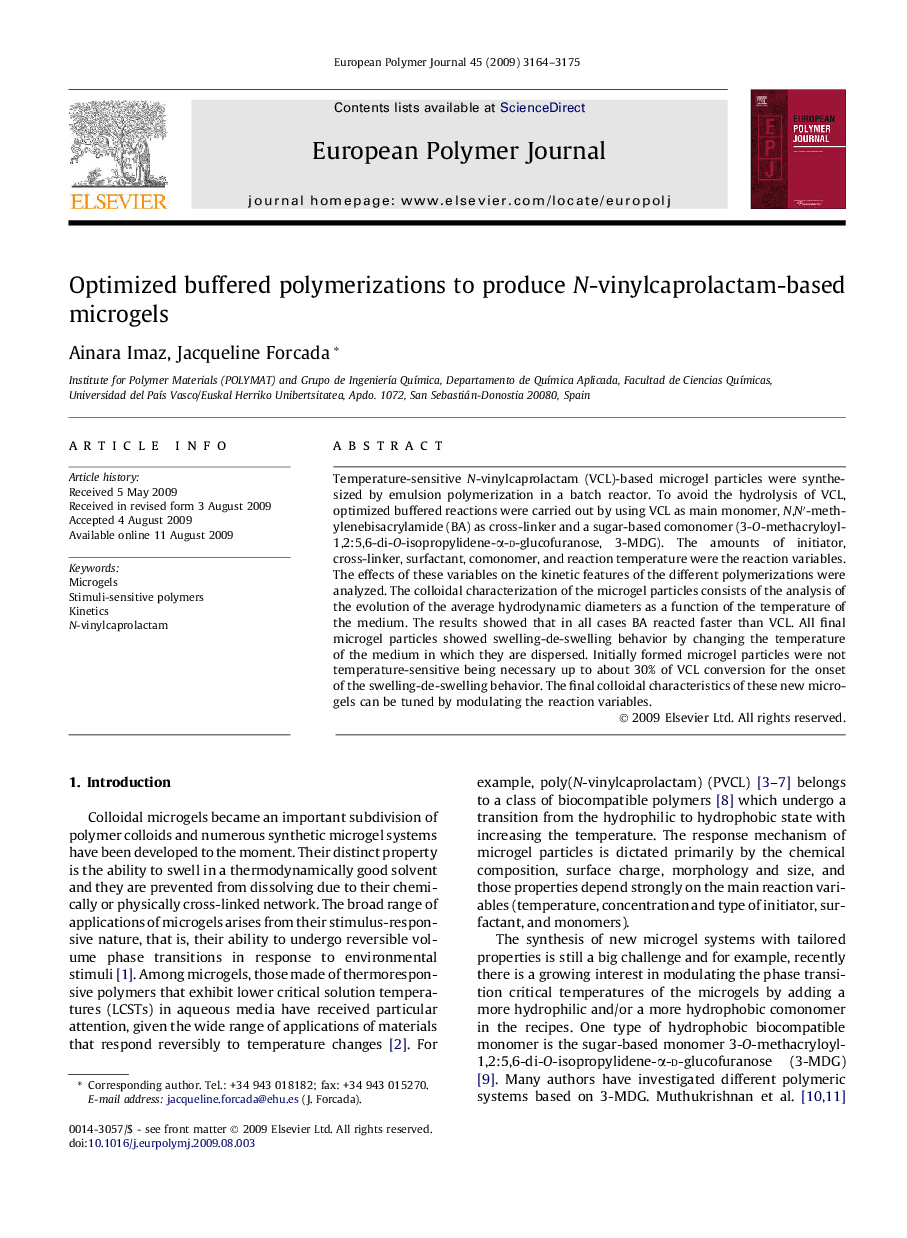| Article ID | Journal | Published Year | Pages | File Type |
|---|---|---|---|---|
| 1402683 | European Polymer Journal | 2009 | 12 Pages |
Temperature-sensitive N-vinylcaprolactam (VCL)-based microgel particles were synthesized by emulsion polymerization in a batch reactor. To avoid the hydrolysis of VCL, optimized buffered reactions were carried out by using VCL as main monomer, N,N′-methylenebisacrylamide (BA) as cross-linker and a sugar-based comonomer (3-O-methacryloyl-1,2:5,6-di-O-isopropylidene-α-d-glucofuranose, 3-MDG). The amounts of initiator, cross-linker, surfactant, comonomer, and reaction temperature were the reaction variables. The effects of these variables on the kinetic features of the different polymerizations were analyzed. The colloidal characterization of the microgel particles consists of the analysis of the evolution of the average hydrodynamic diameters as a function of the temperature of the medium. The results showed that in all cases BA reacted faster than VCL. All final microgel particles showed swelling-de-swelling behavior by changing the temperature of the medium in which they are dispersed. Initially formed microgel particles were not temperature-sensitive being necessary up to about 30% of VCL conversion for the onset of the swelling-de-swelling behavior. The final colloidal characteristics of these new microgels can be tuned by modulating the reaction variables.
Graphical abstractTwo new families of temperature sensitive microgels were synthesized by emulsion polymerization in a batch reactor using a buffer to avoid the hydrolysis of VCL.Figure optionsDownload full-size imageDownload as PowerPoint slide
